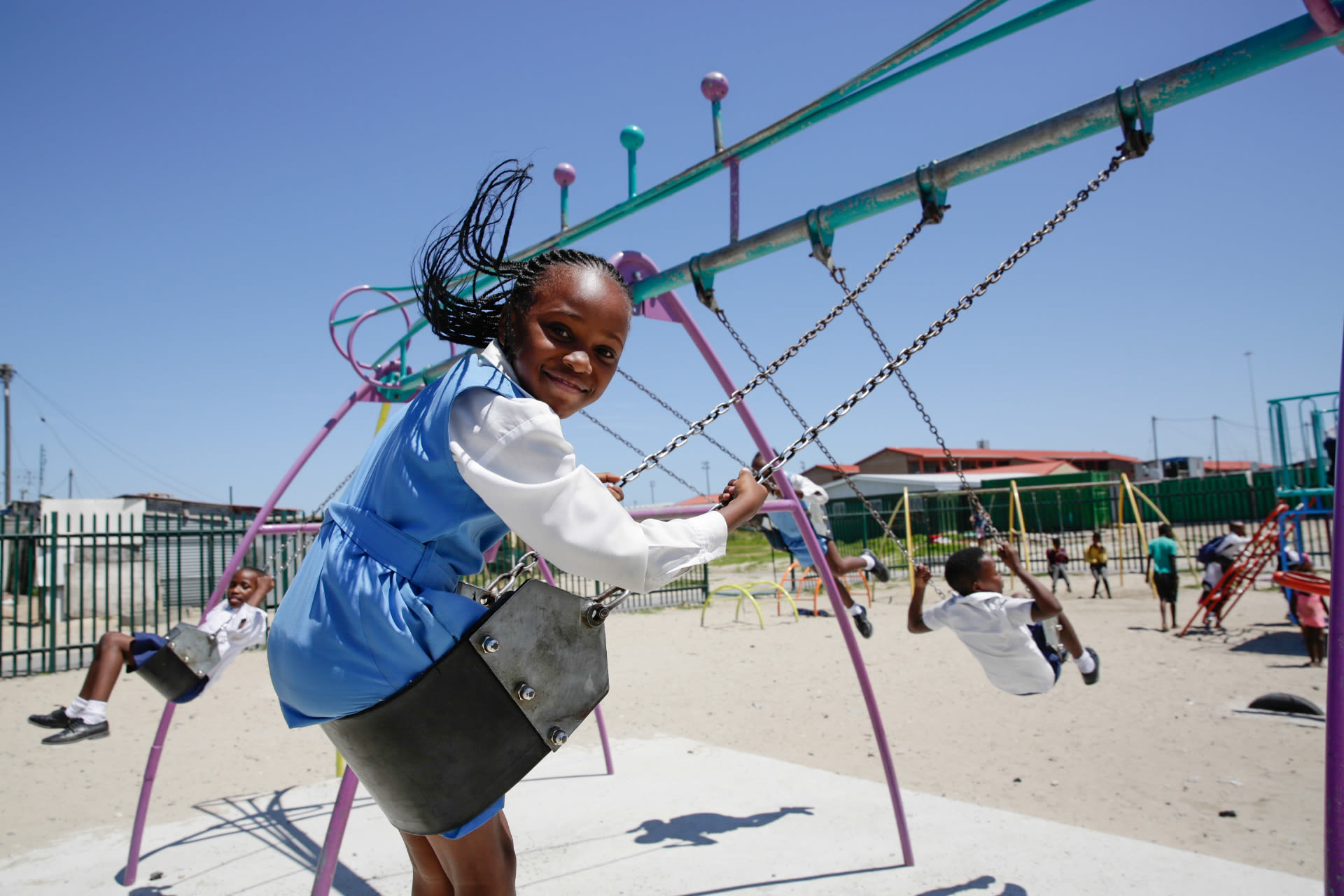
According to the UN, 70 per cent of the world’s population is predicted to live in urban settlements by 2050, generating a growing challenge of dealing with the effects of rapid urbanisation. These include a lack of proper housing and growth of informal settlements. Informal settlements are residential areas with poor quality housing where residents have no rights to land on which they live, lack or are cut off from basic infrastructure and services, and often experience poverty, unemployment, high crime rates and risks to their safety. Safe and secure shelter is a human right: everyone is entitled to an adequate standard of living including access to food, clothing and housing. For people to thrive with dignity and confidence, they need access to not only basic housing, but the ability to create a home in which they feel safe and secure.
In 2012, Comic Relief and UK aid came together to try and address these challenges. Together, and with your support, we’ve invested £20m in 19 amazing organisations in Freetown (Sierra Leone), Cape Town (South Africa), Kampala (Uganda) and Lusaka (Zambia). These organisations have brought together local people and government representatives, as well as civil society organisations, and worked together to improve the livelihoods and uphold the rights of people living in informal settlements in the four cities – and they have succeeded!
What did the programme achieve?
7,980 people living in informal settlements increased their income and 12,787 gained access to financial services.
123,956 people gained access to clean drinking water and 424,334 have better access to an improved sanitation facility.
52,423 young people now have access to quality reproductive health and HIV services and 4,627 children now have access to quality early childhood development services.
353,795 people have been supported to improve their rights to land and property
13,604 people have been supported through community-led processes to have a choice and control over their own development and hold decision-makers to account.
Working Collaboratively
We know positive change can happen when people come together and work collaboratively towards shared goals. Comic Relief chose to fund a range of different organisations working on different issues but within the same cities believing that by working collaboratively, they could achieve greater impact than working in isolation. Over the life of the programme, collaboration strengthened the individual contributions of each organisation and better supported systemic, sustainable city-level development and change that was responsive to the needs of the poor.
Spotlight on our partner Violence Prevention through Urban Upgrading (VPUU)
VPUU is a community-based organisation in Cape Town, South Africa, that aims to create safe communities and improve the quality of life of informal settlement residents. With their funding, VPUU achieved success in a number of areas, including:
Technology: VPUU developed the ‘CitySpec’ app to improve the delivery of essential services. This has included tackling erratic and irregular water services due to faulty taps. Using the app, community members could report faults to the local authority. Repair time reduced to 2-3 days. Click here to read more about how the CitySpec app works(opens in new window) and the impact it’s having.
Early Childhood Development (ECD): VPUU worked with the local city council to create 39 local ECD practitioner posts. Through safe public spaces, home-based outreach and mobile facilities, 1,815 children gained access to early years services. VPUU’s work led to further government funding to roll out their approach across Cape Town.
Land rights: Thanks to VPUU’s efforts, 83% of households in Monwabisi Park and 85% in Lotus Park received occupancy certificates, granting them security of tenure.
Lessons Learnt
We’ve learned a lot through the FCI, including:
Community-led, participatory approaches can successfully improve the lives of people living in informal settlements and should be built on, particularly Slum Dwellers International’s model which was implemented in Cape Town, Lusaka and Freetown.
Introducing new digital tools can be beneficial and can increase local research capacity and data sources. For example, there have been cases where conducting enumerations (surveys of the number of people or homes) of informal settlements has led to their formal recognition.
Pilot projects have helped to secure government buy-in before then investing in taking an initiative to scale.
Looking ahead
Comic Relief will continue to use these lessons learnt from the FCI in our future work and joint programmes with UK aid.
And in Cape Town, Freetown, Kampala and Lusaka, thanks to your support, the relationships and ways of working that funded partners have established have laid the foundation for their work to continue together now that our funding has come to an end. For example, one funded partner in Cape Town recently mobilised their partners and networks to successfully influence the government’s Covid-19 response in informal settlements. Changes to policies that funded partners have achieved have the potential to positively shape the lives of those living in informal settlements, if implemented successfully into the future.
Comic Relief is really proud of the positive change that our partnership with UK aid has contributed to. Thank you for being a part of it.